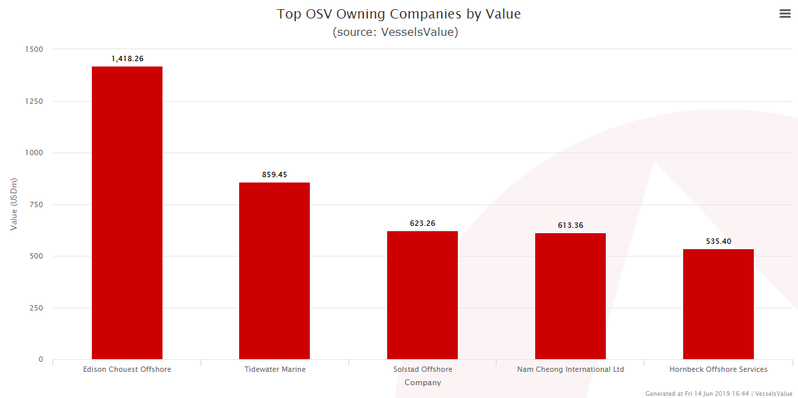Understanding The Importance Of Middle Managers In Today's Business Environment

Table of Contents
The Bridge Between Leadership and Employees
Middle managers are the linchpin connecting high-level strategic planning with on-the-ground execution. They translate the often complex and abstract strategic goals set by upper management into actionable plans and tasks for their teams. This crucial translation process ensures that everyone understands their role in achieving the overall objectives. Furthermore, they foster a critical flow of communication and collaboration across the organizational structure.
- Effective communication strategies employed by strong middle managers: These include regular team meetings, clear and concise communication of goals, open-door policies for employee feedback, and utilizing various communication channels to suit different team members' preferences.
- Examples of how middle managers translate complex strategies into manageable tasks: A marketing manager, for example, might translate a company-wide goal of increasing brand awareness into specific, measurable tasks for their team, such as creating a social media campaign or launching a targeted email marketing initiative.
- The role of middle managers in identifying and addressing employee concerns: Middle managers act as a vital conduit, relaying employee feedback and concerns to senior leadership, ensuring that employee voices are heard and acted upon. This improves morale and fosters a more transparent and collaborative work environment.
Driving Employee Performance and Productivity
Middle managers directly impact employee motivation and performance through effective coaching, mentoring, and performance management. They are responsible for setting clear expectations, providing regular feedback, conducting performance reviews, and identifying opportunities for employee growth and development. Creating a positive and supportive work environment is paramount to their success.
- Strategies for effective performance management by middle managers: Regular one-on-one meetings, setting SMART goals (Specific, Measurable, Achievable, Relevant, Time-bound), providing constructive feedback, and offering opportunities for professional development are all key strategies.
- Methods to improve employee engagement and morale: This includes fostering a culture of recognition and appreciation, promoting teamwork and collaboration, providing opportunities for employee input and participation in decision-making, and ensuring work-life balance.
- The impact of effective coaching on employee productivity: By providing targeted guidance, support, and mentorship, middle managers can help their team members develop new skills, improve their performance, and achieve their full potential, directly contributing to improved team productivity.
Fostering Innovation and Adaptability
Middle managers are often on the front lines, witnessing the day-to-day operations and challenges faced by their teams. This proximity provides them with a unique perspective, allowing them to identify areas for improvement and innovation. They are crucial in adapting to change and implementing new strategies efficiently within their teams.
- Examples of how middle managers have driven innovation within their teams: A middle manager in a manufacturing setting might identify a bottleneck in the production process and suggest a streamlined workflow, leading to increased efficiency.
- Strategies for fostering a culture of innovation and adaptability: This includes encouraging experimentation, embracing failure as a learning opportunity, providing resources for employees to develop new skills, and celebrating successful innovations.
- The importance of empowering employees to contribute to innovation: Middle managers play a key role in empowering their team members by encouraging them to share their ideas, providing them with the autonomy to experiment, and recognizing their contributions to innovation.
The Impact of Effective Middle Management on Organizational Success
The impact of strong middle management on organizational success is undeniable. It contributes to higher employee retention rates, improved overall organizational efficiency and productivity, and directly impacts the achievement of strategic goals. Investing in middle management is investing in the future of the organization.
- Statistical data illustrating the correlation between effective middle management and organizational success: Studies consistently demonstrate a strong positive correlation between effective middle management practices and key performance indicators such as employee retention, productivity, and profitability.
- Case studies demonstrating the positive impact of strong middle management: Numerous case studies illustrate how organizations with strong middle management teams have outperformed their competitors in terms of growth, innovation, and profitability.
- The financial benefits of investing in middle management training and development: Investing in training programs, leadership development initiatives, and mentorship programs for middle managers yields significant returns through improved employee performance, reduced turnover, and increased organizational effectiveness.
Conclusion
This article highlighted the critical role of middle managers in today's business environment. Their ability to bridge communication gaps, drive employee performance, foster innovation, and contribute to overall organizational success cannot be overstated. Investing in the development and support of middle management is a strategic investment in the overall health and profitability of any organization. Recognize and invest in your middle management team. By empowering and supporting your middle managers, you're investing in the future success of your business. Learn more about strengthening your middle management strategies and unlock the full potential of your organization. Understanding the importance of middle managers is key to achieving your business goals, improving team performance, and driving overall organizational success.

Featured Posts
-
 Taylor Swifts Defamation Lawsuit Against Kanye West
May 18, 2025
Taylor Swifts Defamation Lawsuit Against Kanye West
May 18, 2025 -
 Sterkere Nederlandse Defensie Toenemende Steun Voor Groei En Modernisering
May 18, 2025
Sterkere Nederlandse Defensie Toenemende Steun Voor Groei En Modernisering
May 18, 2025 -
 Death Follows Dam Square Car Explosion Police Probe Suicide Theory
May 18, 2025
Death Follows Dam Square Car Explosion Police Probe Suicide Theory
May 18, 2025 -
 Slowing Ocean Currents Supercharging Us Sea Level Rise
May 18, 2025
Slowing Ocean Currents Supercharging Us Sea Level Rise
May 18, 2025 -
 Eurovisions Controversial History And The Uks 2025 Bid
May 18, 2025
Eurovisions Controversial History And The Uks 2025 Bid
May 18, 2025
Latest Posts
-
 Can Carneys Cabinet Deliver A Critical Assessment By Gary Mar
May 18, 2025
Can Carneys Cabinet Deliver A Critical Assessment By Gary Mar
May 18, 2025 -
 Gold Price Drop Profit Taking And Us China Trade Deal Optimism
May 18, 2025
Gold Price Drop Profit Taking And Us China Trade Deal Optimism
May 18, 2025 -
 Assessing Carneys Cabinet A Call For Responsible Governance
May 18, 2025
Assessing Carneys Cabinet A Call For Responsible Governance
May 18, 2025 -
 Will Canadian Tires Acquisition Of Hudsons Bay Pay Off A Comprehensive Analysis
May 18, 2025
Will Canadian Tires Acquisition Of Hudsons Bay Pay Off A Comprehensive Analysis
May 18, 2025 -
 Analyzing The Canadian Tire Hudsons Bay Merger Opportunities And Challenges
May 18, 2025
Analyzing The Canadian Tire Hudsons Bay Merger Opportunities And Challenges
May 18, 2025
